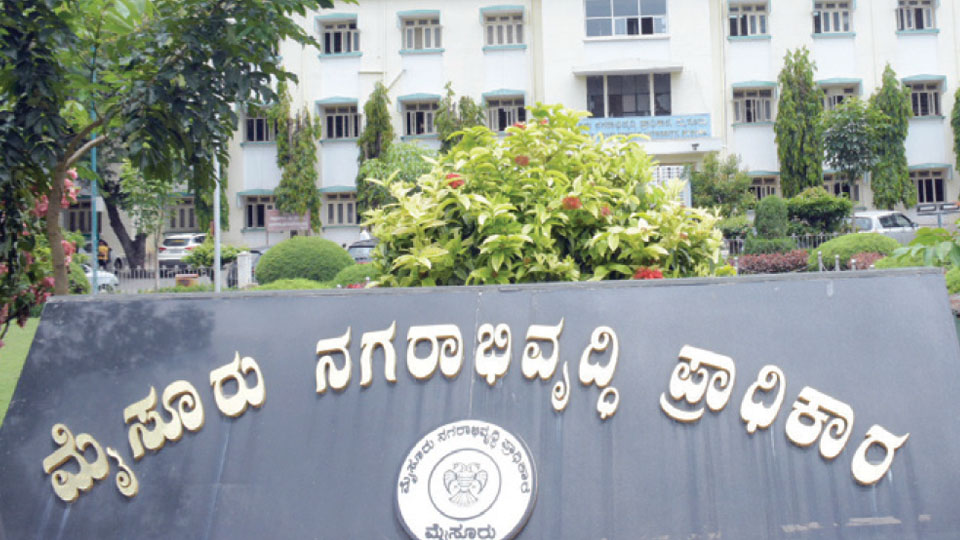Reforms initiated by MUDA Board deliberately not implemented by Officers, elected representatives
Mysuru: The proposal to appoint a separate Estate Officer for the Mysuru Urban Development Authority (MUDA) to safeguard its assets has been put on hold.
Numerous cases of creating fake documents to transfer and allot MUDA sites, encroachments, fake seals and signatures have come to light.
Hundreds of cases are registered at Lakshmipuram Police Station. The Enforcement Directorate, Lokayukta and the One-Man Judicial Commission, led by Justice P.N. Desai, are conducting investigations.
Due to the series of fraudulent deals, beneficiaries who obtained sites legally, those who purchased sites at high auction prices and innocent buyers of MUDA sites from others are facing significant difficulties. Consequently, six years ago, the MUDA Board general meeting decided to appoint an Estate Officer.
No action despite approval
A decision was made to establish a separate unit within the MUDA Office, with the Estate Officer provided with supporting staff and a vehicle to facilitate operations. This decision was approved by the Government.
MUDA’s budget had also allocated funds for the appointment of an Estate Officer. However, despite being recorded in the meeting proceedings, the decision has yet to be implemented. As a result, MUDA sites have been distributed irregularly, leading to widespread corruption.
The Estate Officer and team were tasked with identifying encroachments, securing Police protection, removing encroachments, installing fences and placing signs stating ‘MUDA Property.’
Similarly, when the public purchases MUDA sites from others, the dedicated Estate Officer was to verify and certify the authenticity of the documents. However, this decision remains unimplemented, leaving innocent buyers vulnerable to fraud and difficulties when acquiring disputed or problematic sites.
Paying bribe is mandatory
Citizens complain that when purchasing sites in MUDA layouts, officials assure them that the documents are in order. However, when citizens attempt to verify these documents, they are often made to run around, facing harassment and often unable to get their work done unless they pay a bribe.
If a system were in place to verify the original documents stored in MUDA office files — such as site allocations, acquisitions, account registrations, no-objection certificates and revenue records — it would ensure that the properties are genuine and not fraudulent.
This system would also confirm whether the same site has been allocated to multiple individuals. Such a system would have prevented innocent people from being cheated.
Although a project costing several lakhs of rupees was initiated to scan and digitally store all MUDA records, the funds were spent without achieving the digitisation of records. As a result, MUDA files and documents continue to disappear, making it easy to manipulate and misuse certain pages and notes.
Defunct ‘Jana Spandana’
Previously, a ‘Jana Spandana’ meeting was held monthly, during which officials would listen to public grievances and resolve issues on the spot. This system allowed people to track the status of their applications.
According to citizens, delays in service, bribe demands and pending files were also exposed through these meetings. However, today, it is difficult even to listen to grievances, let alone provide services to applicants.








Recent Comments